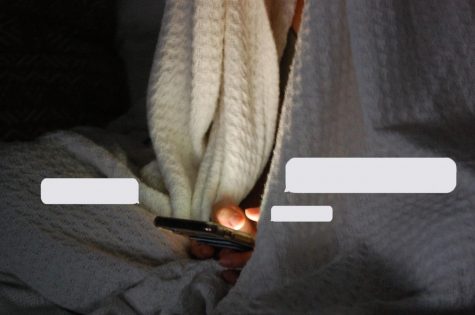OPINION | Social isolation leads to risky student behavior
October 21, 2020

Although Tulane released a comprehensive Return to Campus Plan in late July, this enforcement of campus-wide mask-wearing, social distancing, frequent sanitation and prohibition of gatherings over 15 students on and off campus did not explicitly state all the restrictions concerning residence halls.
Regardless of the fact that college would be different than in previous years, incoming freshmen and returning students alike were enthusiastic about returning to campus. However, few people truly processed the extent to which the coronavirus would affect social and academic life.
It was only in August, when freshmen were preparing their travels to Tulane’s Arrival Center, that many new students learned of the restrictions prohibiting them from entering residence halls that were not their own, and the quota allowing each resident of a room one guest. Tulane vowed to enforce this standard and others by threatening $500 fines per violator, academic probation, suspension and even expulsion.
Students are discouraged from partying and hosting off-campus gatherings to avoid posing a transmission risk to the greater New Orleans community, but restrictions and the lack of opportunities to socialize on campus inevitably inhibit new students from meeting people, making friends and establishing a community to facilitate their transition to Tulane.
Of course, new students have a significant amount of freedom to make friends within their immediate physical environments. That being said, students most likely spend more of their time in their residence halls than they would under normal circumstances. While these individuals can build relationships with those in their dorms, they may struggle to expand their social horizons to those living elsewhere.
It makes sense that venturing off campus is a far more desirable social option for students attempting to build a broader support system.
In the age of the coronavirus, the price tag of socializing has grown. Instead of spending weekends attending on-campus parties or going to other low-cost activities at or near Tulane, many students feel that they need to travel outside of Tulane’s gates in search of the university’s well-known party atmosphere.
As such, many students go to restaurants and bars off campus, The Fly or the French Quarter. Factoring in transportation costs, a weekend out with friends in New Orleans takes a toll on one’s budget to the extent that some students may feel obligated to make unwise financial sacrifices to have a social life. While there are inexpensive and safe ways of spending time with one’s friends, the problem, especially for freshmen, is not what to do once they meet people, but actually meeting those people they want to spend time with in the first place.
Social media further pressures students to show their new peers at Tulane and their friends back home the long-lost normal college experience Those having difficulties finding a steady group of friends may feel at fault for their social isolation, that they are not doing enough to put themselves out there, or even that they should ignore their personal concerns of safety and health to socialize.
The pandemic has lasted much longer than many expected. Denied a typical freshman fall, it is no surprise that freshmen seek to create a conventional college experience. It comes as no shock that the majority of college students are frustrated at the reality that is their new normal, and under the impression that they are wasting precious time.
Yet, everyone must remind themselves that they are all in the same boat. The general sense of insecurity holds the potential to be a powerful community building tool used in a post-pandemic world. While difficult, It is important to remain optimistic and to remember that creating a support system and a social network does not have a deadline ending after the first few weeks or months of college.






















Leave a Comment